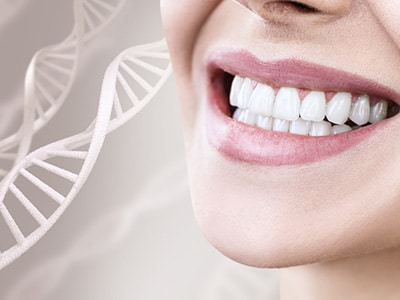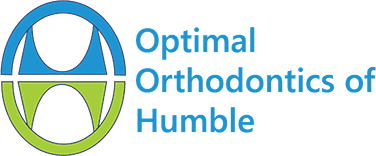The Role of Genetics in Orthodontics: Are Crooked Teeth Inherited?

How Genetics Affect Your Smile
Your genes play a critical role in shaping the structure of your mouth, teeth, and jaw. Much like your height, eye color, or even the shape of your nose, the alignment of your teeth is influenced by the traits passed down from your parents. If your parents or grandparents had crooked teeth, you may be more likely to experience similar orthodontic issues.
Some of the common orthodontic issues that can be inherited include:
- Crowding: If your jaw is too small for your teeth, it can lead to crowding, where teeth overlap and create an uneven appearance. A smaller jaw is often passed down through generations.
- Spacing: Conversely, if you inherit a larger jaw with smaller teeth, it can lead to excessive spacing between teeth.
- Overbites and Underbites: Jaw alignment issues, such as overbites (where the upper teeth significantly overlap the lower teeth) or underbites (where the lower teeth extend beyond the upper teeth), are often the result of inherited jaw structures.
- Misaligned Bite (Malocclusion): Improper alignment of the upper and lower jaws, or malocclusion, is frequently passed down genetically and can cause issues with chewing, speech, and even overall facial symmetry.
Environmental and Behavioral Factors
While genetics set the foundation for your teeth and jaw alignment, environmental factors also play a role. Habits such as thumb-sucking, prolonged use of pacifiers, and even tongue-thrusting can contribute to misaligned teeth, particularly in children. Additionally, tooth loss, injuries, or dental decay can cause shifting in the teeth over time.
At Optimal Orthodontics of Humble, we emphasize that it’s important to address these environmental factors as early as possible to prevent further misalignment. In many cases, a combination of genetic predisposition and lifestyle habits can influence the severity of orthodontic issues.
Can Orthodontics Correct Genetic Issues?
The good news is that orthodontic treatment can effectively address most genetic issues related to crooked teeth or misaligned jaws. Our board-certified orthodontists at Optimal Orthodontics of Humble are trained to identify inherited orthodontic problems early and create a tailored treatment plan to correct them. Treatments like braces, Invisalign, and expanders are highly effective in guiding the teeth and jaw into their proper positions, regardless of the genetic factors at play.
Why Early Intervention Matters
Because genetics play such a significant role in orthodontic health, early intervention is key. At Optimal Orthodontics of Humble, we recommend bringing your child in for their first orthodontic evaluation by age 7. Early detection allows our team to address developing issues before they become more complex, potentially reducing treatment time and costs in the future.
Take Control of Your Smile
Even if crooked teeth run in your family, you’re not destined to live with misaligned teeth. Orthodontic treatment can provide you or your child with a healthy, beautiful smile regardless of your genetic background. Contact Optimal Orthodontics of Humble today to schedule a consultation and learn how we can help correct inherited orthodontic issues and improve your overall oral health.
